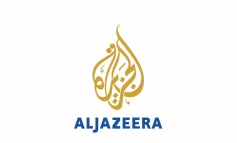CAIRO — Confined to a tiny windowless cell without a mattress or a toilet, denied visitors and held in solitary for months on end, Ola al-Qaradawi is being subjected to harsh treatment even by the grim standards of Egyptian prisons.
Ms. Qaradawi, 55, was arrested in June when national security officers swooped in on her family’s summer villa on the Mediterranean coast. Since then, her lawyers say, she has been denied the most basic privileges, and is allowed a single, five-minute bathroom break every morning.
What crime merits such tough conditions is unclear. The Egyptian authorities have yet to formally charge Ms. Qaradawi, who works in an embassy and is a permanent American resident, or her husband, Hosam Khalaf, who is being held in similar conditions at a separate Cairo prison. State news media outlets say they are accused of belonging to the banned Muslim Brotherhood.
But the true reason for Ms. Qaradawi’s punishment, supporters and human rights activists say, is more likely tied to a bruising geopolitical feudbetween the biggest and wealthiest countries in the Middle East, in which Ms. Qaradawi may have become a hapless pawn.
“A big part of this is about Qatar,” said Aayah Khalaf, Ms. Qaradawi’s daughter.
In June, four Arab countries, including Egypt and Saudi Arabia, imposed a punishing air, sea and trade blockade on Qatar. Among their demands is that Qatar’s gas-rich royals halt their support for prominent Islamists like Ms. Qaradawi’s father, Yusuf.
Mr. Qaradawi is one of the Arab world’s most popular televangelists. For years, his regular appearances on “Shariah and Life” on Al Jazeera attracted tens of millions of viewers. His popularity stemmed from his folksy, religiously inflected guidance on a wide range of subjects, from oral sex and the morality of lottery cards to when it is acceptable to own a dog.
Mr. Qaradawi, a longtime resident of Qatar, is less popular among Western governments: Britain, the United States and some European countries have refused him visas because of his pronouncements in favor of violent attacks on American soldiers in Iraq, and in favor of suicide bombings in Israel.
In television terms the bespectacled cleric, 90, is a waning force: His last broadcast was about four years ago. But he still widely viewed as the spiritual father of the Muslim Brotherhood, and his presence in Qatar is a longstanding irritation for President Abdel Fattah el-Sisi.
After the Egyptian military ousted the Muslim Brotherhood’s Mohamed Morsi in 2013 as the elected president of Egypt, Mr. Qaradawi urged Egyptians to rise up against Mr. Sisi.

Egypt stepped up its demand for Mr. Qaradawi’s extradition as one condition for the lifting of the anti-Qatar boycott, shortly after it was imposed in early June. Qatar’s leaders, who have a longstanding relationship with Mr. Qaradawi and have given him Qatari citizenship, refused to comply.
Then, on June 30, Egyptian security forces seized his daughter and her husband, Mr. Khalaf, 58, at their vacation home on Egypt’s Mediterranean coast. The security forces raided their Cairo apartment and confiscated money, jewelry and documents. In August, the authorities froze the couple’s assets which, they said, were being used to finance the Muslim Brotherhood.
Ms. Qaradawi insists she has never been active in politics, and Human Right Watch and other groups have denounced her arrest as politically motivated. While Mr. Sisi has imprisoned thousands of Brotherhood supporters since 2013, their female family members have generally been left alone. To critics, the couple’s arrest smacks of a vendetta linked to the wider Qatar crisis.
“It is unbelievable that we are now living in the era of taking hostages from the families of opponents,” Mostafa al-Naggar, a former lawmaker, wrote in a Facebook post.
Ms. Qaradawi and her husband were already under official scrutiny before their arrest. Mr. Khalaf was imprisoned in 2014 for his ties to a small Islamist political party, and released without charge two years later. Ms. Qaradawi is employed as a researcher at the Qatari Embassy in Cairo.
They hope their status as American residents, which they obtained last year, might help persuade the White House to take up their case. Although President Trump has hailed Mr. Sisi as a “fantastic guy,” his administration in August cut or withheld $291 million in aid in response to Mr. Sisi’s woeful human rights record.
Last spring, in one of his administration’s most clear-cut foreign policy achievements, Mr. Trump helped secure the release of Aya Hijazi, an Egyptian-American aid worker imprisoned in Egypt.
But the Muslim Brotherhood, never popular in Washington, is an especially tough sell right now. Mr. Trump considered designating the Brotherhood as a terrorist organization this year, holding back only on the advice of intelligence officials and diplomats.
And Mr. Qaradawi, the preacher, evokes limited sympathy in policy circles even if he has been one of the most popular clerics in the Muslim world since the 1960s. In the early weeks of the Arab Spring, in 2011, Mr. Qaradawi addressed huge crowds in Cairo’s Tahrir Square. He has published over 100 books and has 1.8 million followers on Twitter.
Although he denies being a member of the Brotherhood, his sermons are hugely influential in Egypt, where Mr. Sisi’s government has charged him with terrorism. Some sermons are tinged with sectarianism — he once said that Christians in Egypt have sided with the military and the West against the Brotherhood.
The Egyptian prosecutor’s office did not respond to requests for comment.






Leave a Reply